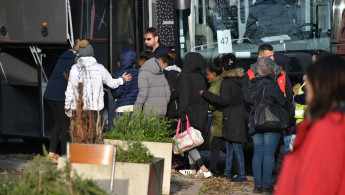Refugee children living without parents in Calais' bushes 'not welcome in the UK'
The court ultimately decided against the so-called 'Dubs amendment', which would have allowed hundreds more refugee children travelling alone to settle in the UK, while campaigners have already planned to appeal.
The 'Dubs amendment' was initially proposed by Lord Alf Dubs, who fled Nazi persecution as a child. It aimed to bring 3,000 children travelling without their parents to the UK, but was closed down by the government in February.
Lord Dubs told reporters he was "very disappointed" by the decision.
"We went into this with high hopes," he told The Independent.
"Based on the evidence I'm really quite surprised. I've spoken to lots of local authorities who are willing to take in more child refugees," he added.
The Help Refugees charity brought the case against the charity, arguing the process used to allocate homes to refugee children was "fundamentally flawed".
Twitter Post
|
In closing the judicial review, the judges said there was nothing which "can show that the consultation process or the consideration of the results was unlawful".
Josie Naughton, founder and chief executive of Help Refugees, said: "We are bitterly disappointed by this result but also very proud of what our litigation has already achieved.
"At the time our litigation was issued, not a single child had been transferred to the UK under the Dubs amendment. Transfers began under the pressure of this litigation and under the pressure from campaigners and parliamentarians.
"We've unearthed 130 extra places, which the government eventually admitted it had overlooked."
Help Refugees asked the court in June to order Home Secretary, Amber Rudd, to consult local authorities and reopen the scheme.
There are currently around 200 child refugees in Calais that are living without shelter, with many living in bushes. At least four children died last year while trying to smuggle themselves into the UK.
"Many of us have refugee genes. Many of us in a parallel universe would be refugees. We could be those children," said Stella Creasy MP.





 Follow the Middle East's top stories in English at The New Arab on Google News
Follow the Middle East's top stories in English at The New Arab on Google News


